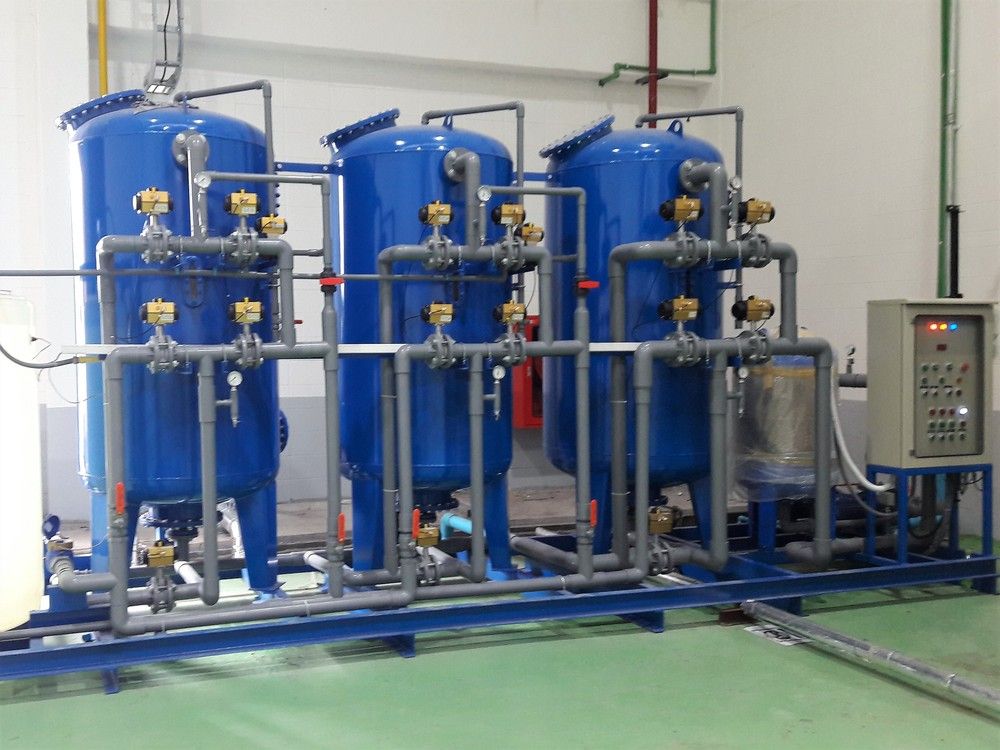People should be aware that the general term “hard water” refers to a water supply that has absorbed or taken in a significant amount of minerals from the earth, such as calcium, magnesium, and others. If these minerals are absent in large quantities, soft water is also known as such. You should also know that water, like the water in lakes or streams, is naturally soft. In addition, the municipal water utility company or an in-house water treatment tool, also referred to as a water softener, can treat water to become naturally soft. A water softener is a kind of appliance or tool that filters water to remove minerals like calcium and magnesium from the water.
About Different Types of Hard Water –
Underground water sources become quite hard due to the nature of the rock that rainwater passes through to reach the surface. The majority of areas with a high concentration of chalk, gypsum, and limestone have hard water in their groundwater reservoirs, whereas areas with a predominant rock, such as granite or another less calcium-rich stone, naturally have soft water. In some agricultural areas where lime is applied in large quantities, water can become hard. The issue of sulphur content is another one that can be effectively addressed. The water’s unpleasant odour and reddish or brown colour are two of the most obvious indications that the water has too much sulphur in it. Additionally, it may result in bacteria and corrosion in the drinking water.
What Happens if You Don’t Use Water Softener –
Some of the consequences of using hard water hard water—or too much of it—can result in a number of issues. There is no health risk associated with drinking hard water that has minerals like high levels of magnesium or calcium dissolved in it. Even in trace amounts, minerals like the one mentioned earlier are crucial to health. However, if these minerals are present in high concentrations, they may accumulate in plumbing, pipes, fixtures, and other appliances, primarily impairing their functionality. Mineral build-up, for example, can shorten the lifespan of water heaters and faucets. After taking a bath in water that has a lot of minerals in it, some people may feel itchy. In addition, hard water may prevent you from lathering your soap because the minerals in the water may combine with the soap to form a clinging, sticky scum. Hard water is the cause of any water spots in the dishwashing or cleaning area. It can be time-consuming to remove the sticky scum from clothes and hair.
Ion Exchange –
There are a variety of water softeners to choose from. The ion exchange is the first. It is one of the most widely used kinds of home water softeners. It works by replacing magnesium and calcium ions with sodium ions that aren’t harmful and then removing them. One of the most well-known systems uses salt pellets in large tanks. The next is salt-free, and the calcium is removed from it through mechanical filtration. However, it performs poorly in water that is extremely hard. Magnesium cannot be removed by it.
Reverse Osmosis –
The following device is called reverse osmosis. One such device can filter water through a membrane that is only partially permeable. It eliminates 98% of the contaminants in water. It costs a lot to use. Additionally, it makes extensive use of water. However, it is an excellent instrument for removing calcium and magnesium from water. Due to the fact that the human body requires minerals, using this device may have negative effects. Reverse osmosis can deplete the body of essential minerals over time.
You may also like
-
The Silent Guardians: How High Pressure Valves Protect Lives You Never See
-
Essential Pond Pump Maintenance Tips
-
Remodeling Roadblocks? Here’s How to Upgrade Your Master Bathroom the Right Way
-
Pests in Car – How to Keep Them Out of Your Vehicle
-
Understanding Key Factors That Affect Your Deck’s Lifespan


